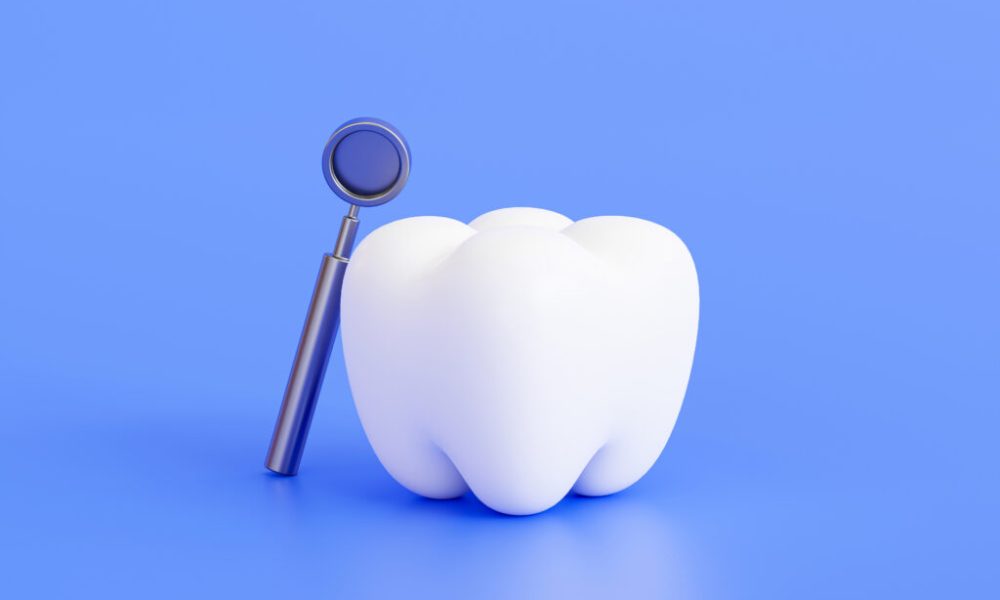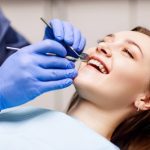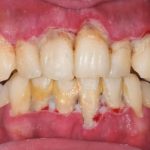Oral hygiene is not just about maintaining a bright smile; its also about ensuring the health of your gums. Periodontal diseases can lead to severe dental issues if not addressed promptly. One crucial preventive measure is periodontal cleaning. This article explores what periodontal cleaning is, its importance, the procedure, and how it differs from regular teeth cleaning.
What is Periodontal Cleaning?
Periodontal cleaning, also known as deep cleaning or scaling and root planing, is a dental procedure aimed at treating gum diseases and preventing them from progressing. Unlike a regular dental cleaning that focuses on the surfaces of your teeth above the gum line, periodontal cleaning delves deeper to remove plaque and tartar buildup from below the gum line. This type of cleaning targets the pockets that form between the teeth and gums due to periodontal diseas

The Importance of Periodontal Cleaning
Periodontal cleaning is essential for several reasons:
- Prevents Gum Disease Progression: Plaque and tartar buildup beneath the gum line can lead to gum inflammation and infection, known as gingivitis. If left untreated, gingivitis can progress to periodontitis, a more severe form of gum disease. Periodontal cleaning helps halt this progession.
- Reduces Pocket Depth: One of the hallmarks of periodontal disease is the formation of pockets between the teeth and gums. These pockets can deepen over time, harboring bacteria that lead to further infection and bone loss. Periodontal cleaning helps reduce the depth of these pockets, making it harder for bacteria to thrive.
- Promotes Gum Reattachment: By thoroughly cleaning the root surfaces, periodontal cleaning allows the gums to heal and reattach to the teeth. This process helps restore the natural contour of the gums and prevents further recession.
- Improves Overall Oral Health: Healthy gums are the foundation of a healthy mouth. By preventing gum disease, periodontal cleaning also helps protect against tooth loss, bad breath, and other oral health issues.
How Periodontal Cleaning Differs from Regular Teeth Cleaning
While both periodontal cleaning and regular teeth cleaning aim to maintain oral health, there are key differences between the two:
- Purpose: Regular teeth cleaning, also known as prophylaxis, isprimarily a preventive measure. It focuses on removing plaque and tartar from the surfaces of the teeth above the gum line to prevent cavities and gingivitis. Periodontal cleaning, on the other hand, is a therapeutic procedure designed to treat gum disease by removing plaque, tartar, and bacteria from below the gum line.
- Depth of Cleaning: Regular cleaning typically involves scaling the visible surfaces of the teeth and polishing them. Periodontal cleaning goes deeper, cleaning the tooth roots and smoothing rough areas to prevent bacteria from adhering.
- Frequency: Regular cleanings are usually recommended every six months for most patients. Periodontal cleaning may be needed more frequently, depending on the severity of the gum disease and the patient’s individual oral health needs.
The Periodontal Cleaning Procedure
The periodontal cleaning procedure usually involves two main steps: scaling and root planing. Here’s a closer look at each step:
Scaling
Scaling is the process of removing plaque and tartar from the tooth surfaces, especially from below the gum line. Dentists or dental hygienists use specialized tools, such as ultrasonic scalers and hand instruments, to carefully clean these areas. Ultrasonic scalers use vibrations to break up tartar, while hand instruments are used to remove any remaining deposits.
Root Planing
Root planing involves smoothing the root surfaces of the teeth. This step is crcial because it removes any rough spots where bacteria tend to accumulate. Smoothing the roots also encourages the gums to reattach to the teeth, reducing pocket depth and promoting healing.
What to Expect After Periodontal Cleaning
After a periodontal cleaning, it’s normal to experience some sensitivity and discomfort. Your gums may feel tender and may bleed slightly. These symptoms typically subside within a few days. Your dentist may recommend over-the-counter pain relievers and suggest a soft det to minimize discomfort during the healing process.
It’s also important to maintain good oral hygiene practices after a periodontal cleaning to prevent further buildup of plaque and tartar. Brushing twice a day with a soft-bristled toothbrush, flossing daily, and using an antibacterial mouthwash can help keep your gums healthy and prevent the recurrence of gum disease.
Periodontal Maintenance: A Critical Follow-Up
After completing a periodontal cleaning, regular follow-up visits known as periodontal maintenance are essential. Periodontal maintenance is a specialized form of cleaning that is recommended for patients who have undergone periodontal treatment. It involves a thorough examination of the gums and teeth, removal of plaque and tartar, and monitoring of periodontal pockets.
The frequency of periodontal maintenance visits varies depending on the sevrity of the gum disease and the patient’s response to treatment. For some, visits every three to four months may be necessary to prevent the recurrence of periodontal disease.
Recommended Blog about Periodontal Maintenance: periodontal maintenance
How to Prevent Gum Disease
Preventing gum disease requires a combination of good oral hygiene practices and regular dental visits. Here are some tips to keep your gums healthy:
- Brush and Floss Regularly: Brushing your teeth twice a day and flossing daily are essential for removing plaque and preventing gum disease.
- Use an Antibacterial Mouthwash: An antibacterial mouthwash can help reduce plaque buildup and control gum inflammation.
- Quit Smoking: Smoking is a significant risk factor for gum disease. Quitting smoking can improve your oral health and reduce your risk of developing periodontal disease.
- Eat a Balanced Diet: A diet rich in vitamins and minerals, especially vitamin C and calcium, can help maintain healthy gums.
- Schedule Regular Dental Checkups: Regular dental visits allow your dentist to monitor your gum health and catch any early signs of gum disease
Expert Advice from Renowned Dentists on Periodontal Cleaning
Understanding periodontal cleaning and its role in maintaining oral health can be significantly enhanced by insights from leading experts in dentistry and periodontology. Heres what some renowned dentists have to say about the importance of periodontal cleaning:
Dr. Michael Glick, DMD

Dr. Michael Glick, former Editor of the Journal of the American Dental Association (JADA), emphasizes the crucial role of periodontal health in overall well-being. He states, “Periodontal disease is a silent condition that, if left untreated, can lead to severe complications such as tooth loss and even affect systemic health. Regular periodontal cleanings are essential in managing and preventing these adverse outcomes.”
Dr. Glick’s advice underscores the importance of not ignoring gum health. He recommends that patients remain vigilant about any changes in their gum health, such as bleeding or swelling, and seek professional evaluation promptly.
Dr. Sam Low, DDS, MS, MEd

Dr. Sam Low, a past president of the American Academy of Periodontology, advises that “prevention is always better than cure when it comes to gum disease.” He advocates for early intervention through periodontal cleanings, which can effectively prevent minor gingivitis from developing into more severe periodontitis.
Dr. Low highlights the importance of personalized dental care plans. He believes that a tailored approach, which includes regular periodontal assessments and cleanings, is key to maintaining long-term gum health. “Your periodontist can help create a customized maintenance schedule based on your individual needs, which is crucial for preventing the recurrence of gum disease.”
Dr. Richard H. Nagelberg, DDS

Dr. Richard H. Nagelberg, a prominent dentist and advocate for dental education, often speaks about the importance of patient education in periodontal health Patients need to understand that periodontal disease is not just about the gums but involves the entire body. Educating patients on the significance of periodontal cleaning can empower them to take better care of their oral health.”
He advises dental professionals to spend time educating their patients on the signs and symptoms of gum disease and the benefits of regular periodontal cleanings. “An informed patient is more likely to engage in proactive dental care, leading to better outcomes.
Conclusion
Periodontal cleaning is a vital procedure for anyone at risk of or suffering from gum disease. It goes beyond regular cleaning to address the root causes of gum problems and prevent them from escalating into more serious issues. Integrating periodontal cleaning into your regular dental care routine is one of the essential health ideas for maintaining long-term oral health and preventing complications associated with gum disease.
By understanding the importance of periodontal cleaning and following through with recommended treatments and maintenance, you can ensure your gums remain healthy and strong. When exploring ideas discover the benefits of regular periodontal care as a proactive step towards maintaining optimal oral health and preventing gum disease.
This article provides a comprehensive overview of periodontal cleaning, its importance, the differences between periodontal cleaning and regular cleaning, and tips for maintaining gum health. It should be useful for readers seeking to understand this dental procedure better.



No Comment! Be the first one.